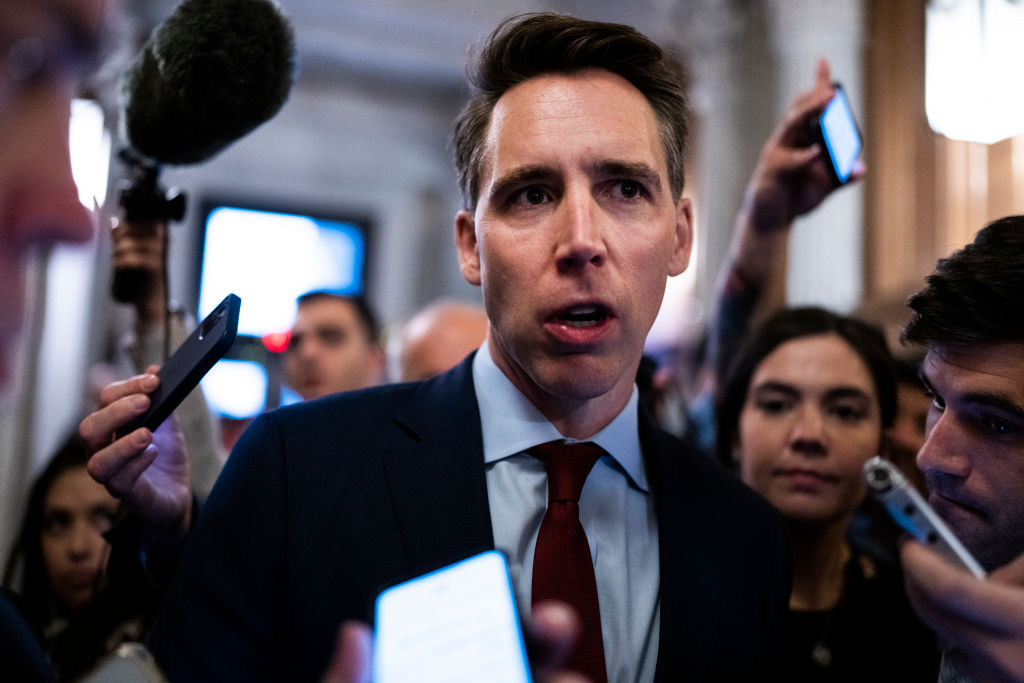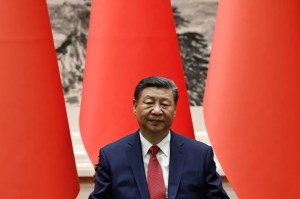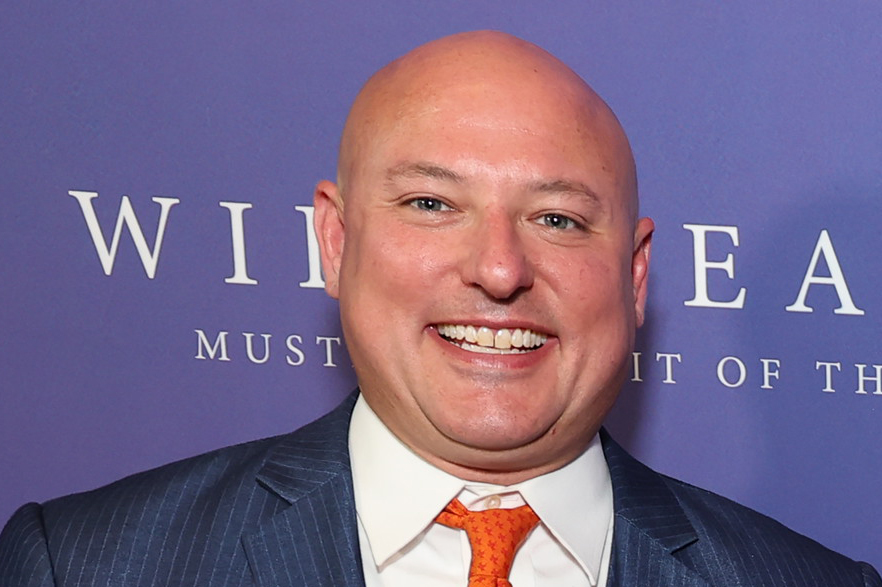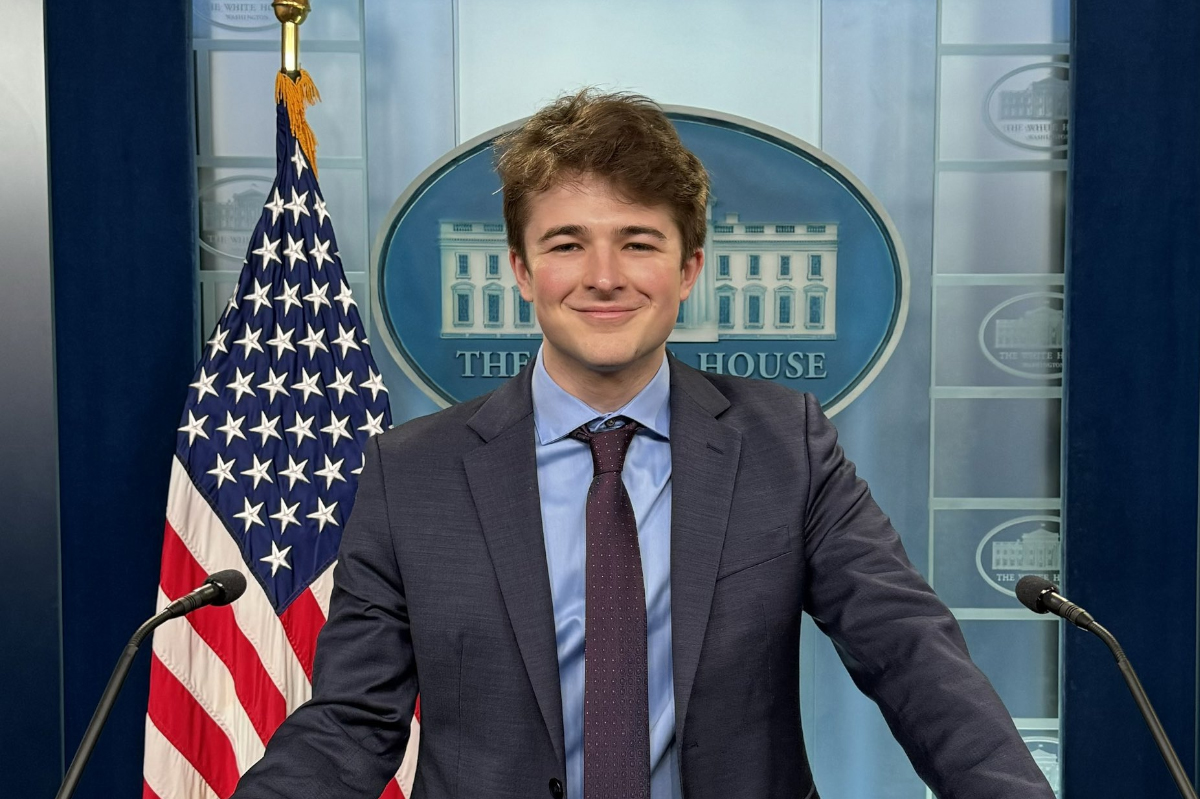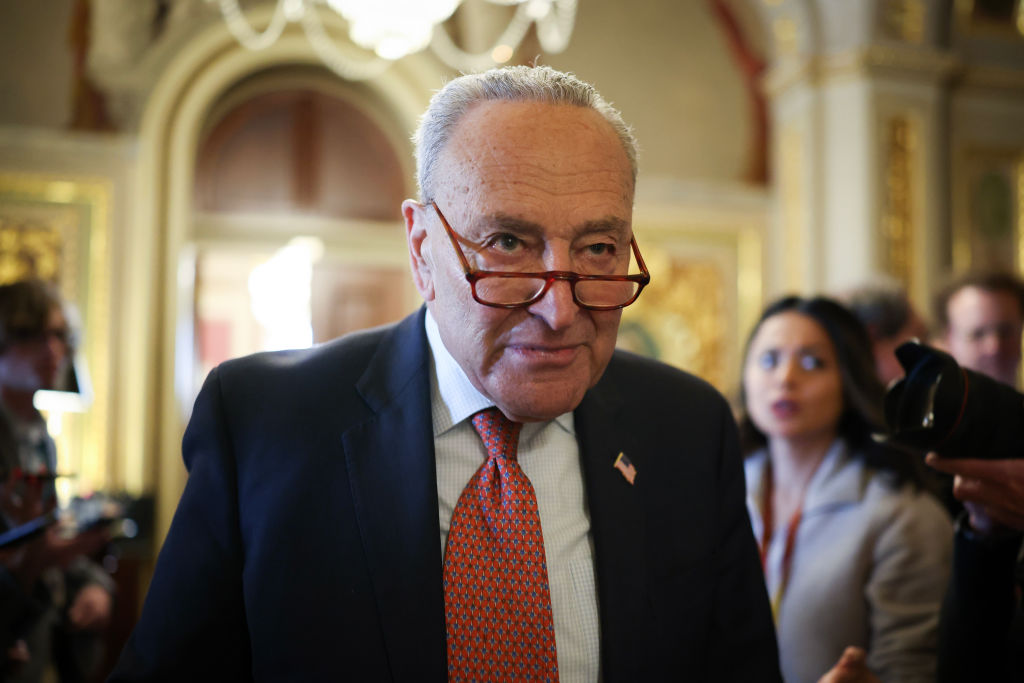Missouri senator Josh Hawley’s attempt to pass his “No TikTok on United States Devices Act” resulted in a clash with Kentucky senator Rand Paul that made for a rare moment of actual debate on the Senate floor yesterday. The conservative senators were at odds over whether the government should ban the Chinese social media app.
“I have never before heard on this floor a defense of the right to spy,” Hawley responded. “I didn’t realize that the First Amendment contained a right to espionage. The senator from Kentucky mentions the Bill of Rights. I must have missed the right of the Chinese government to spy on Americans in our Bill of Rights. Because that’s what we’re talking about here.”
“The company has bent over backwards to work with our government,” Paul claimed. “Everything that’s been said about, ‘oh this is a channel and a funnel to the Chinese government,’ these are all conjecture.”
“We confirmed from the testimony of the TikTok CEO that TikTok has the ability to track American’s data, to track Americans’ location, to track Americans’ personal lives whether they want it to or not,” Hawley said. “It’s not just the videos that you watch. It’s the key strokes that you enter and not just while you are on the app. No, it tracks your key strokes all the time.”
Democrats had been struggling to find someone who would object to Hawley’s unanimous consent request in the days leading up to it, and Paul bailed them out where one of their members would have had to stand up instead. (The White House reportedly prefers the bipartisan Mark Warner-John Thune measure, which includes a number of more troublesome propositions for expanding government power.)
Hawley’s bill, sponsored by Republican Ken Buck in the House, is a straight up use of the International Emergency Economic Powers Act, or IEEPA, directing the president to prohibit transactions with TikTok’s parent company ByteDance within thirty days.
Where Paul sees this as a First Amendment issue, the fundamental security interests of the United States don’t compel us to allow for a China-based spy application to exist on tens of millions of American devices. And the deployment of western values in pursuit of the aims of the Chinese Communist Party is not a new development, but essential to understanding the CCP’s approach to message control and propaganda.
A decade ago, we became aware of China’s “Communiqué on the Current State of the Ideological Sphere”, which became known as Document Number Nine. Its purpose was to let the ninety million members of the Communist Party of China know who the enemy is, and the internet should be used to do battle with them. As John Lanchester summarized the document in the London Review of Books:
In 2013, an amazing paper from the highest reaches of the CCP, catchily known as “Document Number Nine,” or “Communiqué on the Current State of the Ideological Sphere,” came to light. (The journalist who leaked it, Gao Yu, was sentenced to seven years in prison and is currently under house arrest.) Document Number Nine warned of “the following false ideological trends, positions and activities”: “promoting Western constitutional democracy”; “promoting ‘universal values’”; “promoting civil society”; “promoting neoliberalism”; “promoting the West’s idea of journalism, challenging China’s principle that the media and publishing system should be subject to party discipline”; “promoting historical nihilism” (which means contradicting the party’s view of history); “questioning Reform and Opening and the socialist nature of socialism with Chinese characteristics.” The paper, which is cogent and clear, takes direct aim at the core values of Western democracy, and explicitly identifies them as the enemies of the party. It sees the internet as a crucial forum for defeating these enemies. The conclusion speaks of the need to “conscientiously strengthen management of the ideological battlefield,” and especially to “strengthen guidance of public opinion on the internet” and “purify the environment of public opinion on the internet.”
There can be little question that TikTok serves all of those aims. But for Paul — and for his biggest financial supporter, America’s largest investor in TikTok— these concerns are secondary. But the move to ban TikTok isn’t about the content it’s pushing, though that has negative effects on American teens — it’s about what’s going on in the data-collecting guts of the app, and the adversarial government that accesses it.
This battle represents the first true test of the bipartisan consensus on China. It is meaningful that already there are arguments, from AOC on the left and now Rand Paul on the right, that it is somehow a requirement that we allow this invasive, predatory takeover of the data of Americans under the First Amendment.
Florida senator Marco Rubio said yesterday on the floor: “This is not a First Amendment issue, because we’re not trying to ban booty videos.” It’s not about the booty videos. It’s about whether the Chinese Communist Party has the right to poison our minds and seize our data without our permission, just as they’ve poisoned so many Americans with fentanyl. There’s no constitutional right to do any of that.



